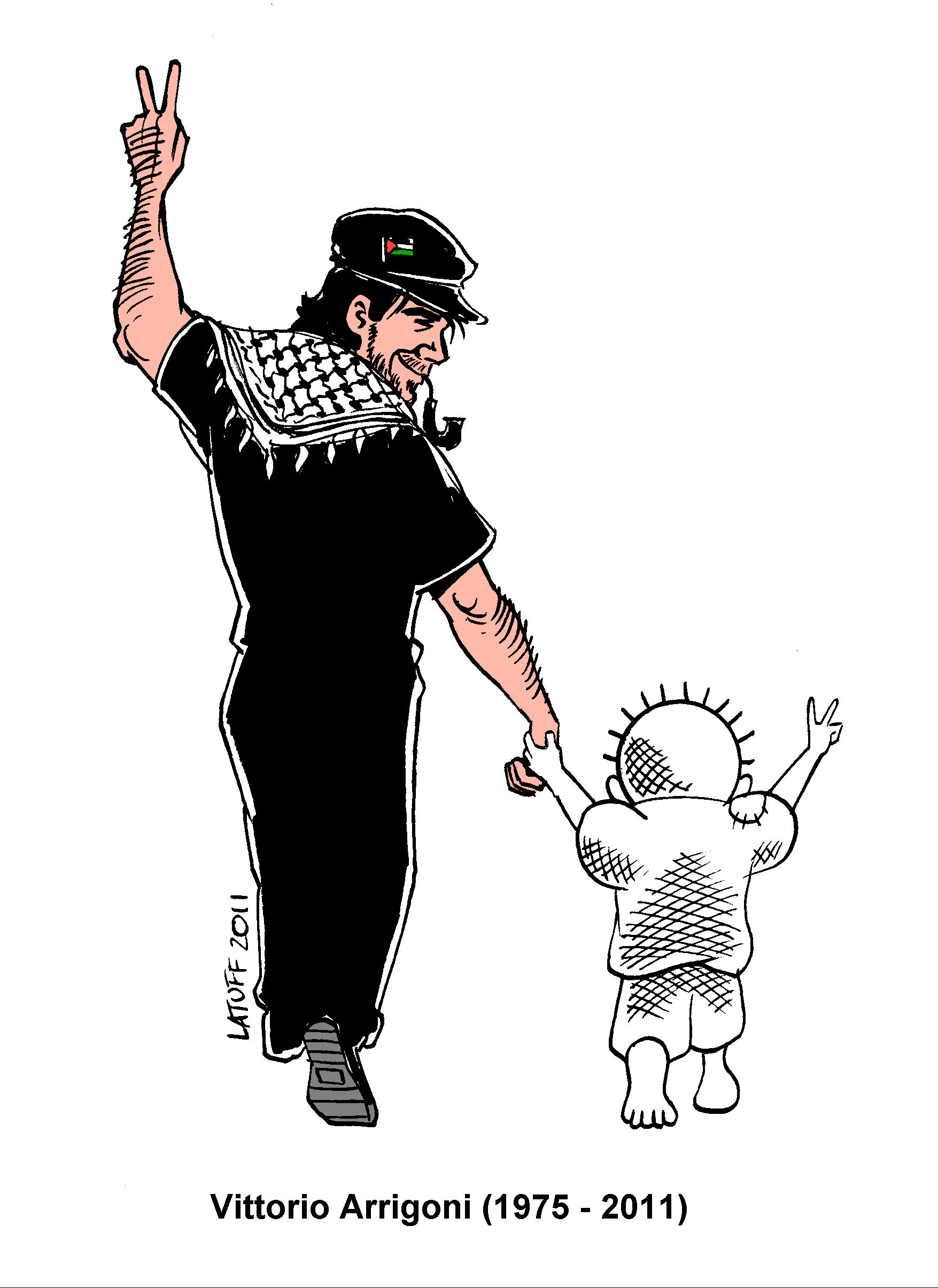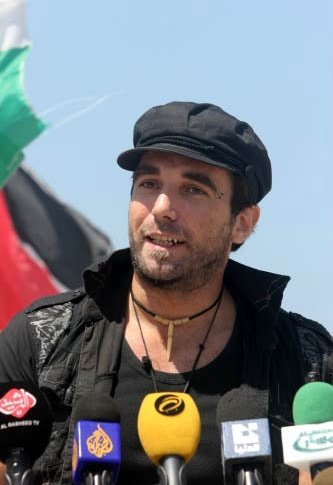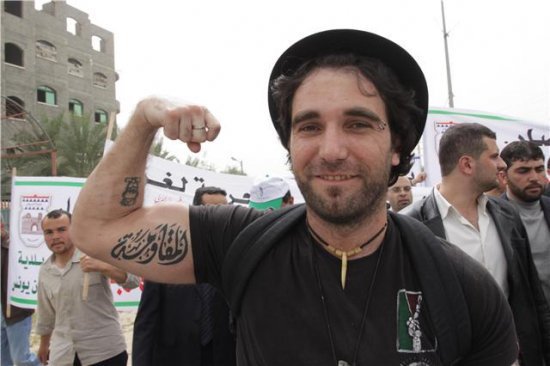Category: Press Releases
-
Solidarity Statements in honor of Vittorio Arrigoni
Organizations throughout Palestine and around the world are honoring Vittorio Arrigoni’s life and his work for the liberation of the Palestinian people. Collected here are some of those statements. If your organization is planning to issue a statement, please send it and any related URL to palestinesolidarity [at] gmail.com.
-
Palestinians in Gaza and the West Bank unite in mourning of slain activist Vittorio Arrigoni
International Solidarity Movement Gaza FOR IMMEDIATE RELEASE Palestinians across the Gaza strip and the West Bank will join today in mourning slain activist Vittorio Arrigoni. People will gather both in the Al Manara square in Ramallah and at Al Jundi al Majhull, the unknown soldier park, in Gaza City. Mourners will be received by the…
-
ISM confirms the death of Vittorio Arrigoni
April 15: Updated with news reports below. The International Solidarity Movement is shocked and deeply saddened by the killing of our friend and colleague Vittorio Arrigoni. Vik was an inspiring activist and generous soul. Please keep his family and friends in your thoughts. We will post more information here as it becomes available. Press Stories…



